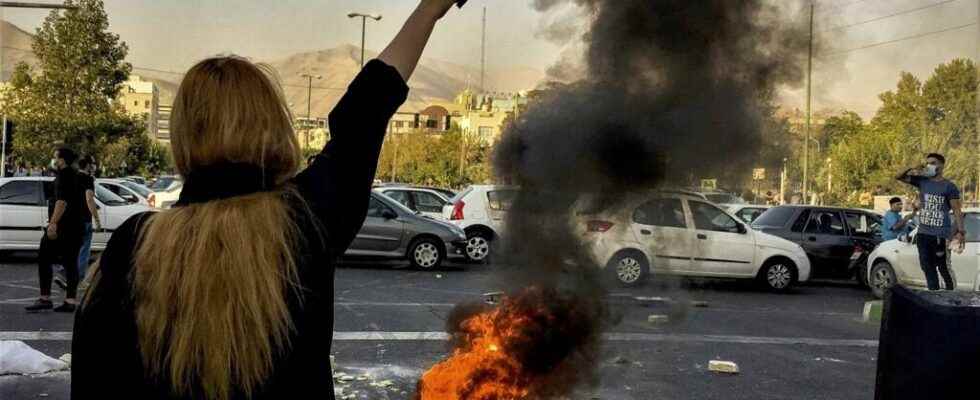According to the NGO Iran Human Rights, the Iranian security forces have killed 72 people, including 56 in the Kurdish regions, during the last week of repression.
After several weeks of trying to contact her, RFI was finally able to reach a young Iranian Kurd on the spot. Her name is Midia and she managed to find a way around the communication restrictions to testify. ” Today in Kurdistan, Iranian forces use weapons of war such as Kalashnikovs, machine guns and tear gas “says the young woman.
In recent days, convoys of armored vehicles have been deployed throughout the Kurdish-majority region. Eyes are particularly focused on Mahabad, a symbolic city, as the former capital of the short-lived Kurdish state during the Republic of Mahabad in 1946.
” Iranian forces are acting brutally everywhere. But what is happening in Kurdistan is really special. This type of repression with weapons of war is not an option for Tehran or for other areas inhabited mainly by Persians. The Iranian regime uses these violent methods in the west of the country, because we are under Iranian occupation, says Midia. After the first 62 days of demonstrations, more than 140 Kurds had already been killed, including children, and more than 4,000 arrested. The only thing they did was scream “woman, life, freedom”.
” In a way, I feel happy, because I participate in the struggle for women’s rights, the liberation of Kurdistan and happiness. But at the same time, I can’t help but feel sad. I see my own people every day fighting for their rights, for freedom, and the Iranian state responds with bullets, continues the young Kurd. I myself treated a 12-year-old boy who was shot by Iranian forces. Nevertheless, I remain hopeful. Even if the demonstrations were to stop for a while, the liberation movement will resume as soon as it can “.
Midia goes so far as to denounce an ongoing genocide. Since the start of the demonstrations, the Iranian authorities have tried in any case to present the uprising in the Kurdish areas as a danger to the integrity of the national territory. The voices of these demonstrators nevertheless unite with those of the rest of the country.
The United Nations High Commissioner for Human Rights has denounced a toughening of repression. He was particularly worried about the situation in the Kurdish-majority towns from which the movement of indignation started after the death of Mahsa Amini.
► To read also: Protest in Iran: “With each new death, anger rises and violence with it”
